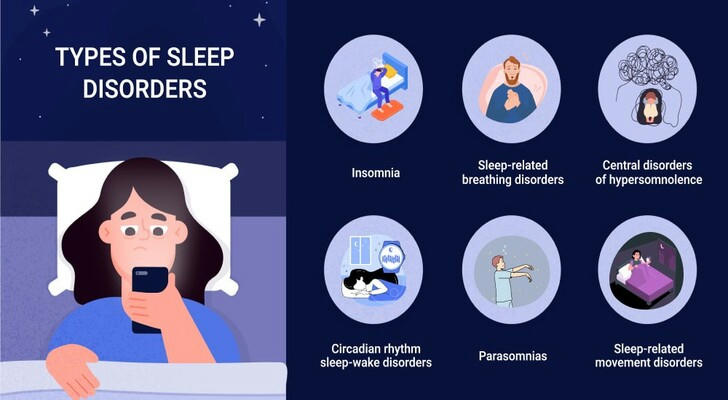Effective Sleep Disorder Medications: A Comprehensive Guide to Improving Sleep Quality
Sleep disorders are a significant concern for many individuals, with millions affected worldwide. Sleep disorder medications are essential for managing conditions like insomnia and enhancing sleep quality and duration. These medications, which range from prescription options like benzodiazepines and non-benzodiazepine sleep aids to over-the-counter remedies, are designed to tackle various sleep-related issues. It's important to consult with a healthcare professional before starting any sleep disorder, to ensure its safety and effectiveness, and tailored to individual needs.

Sleep disorders are increasingly common, affecting millions of people globally. Medications designed to assist with sleep, known as sleep disorder medications, play a crucial role in managing conditions like insomnia. These medications aim to enhance sleep quality and duration while addressing the root causes of sleep disturbances.
Types of Sleep Disorder Medications
There are various categories of sleep disorder medications available, each designed to address different aspects of sleep-related issues. Below are some of the primary types:
1. Prescription Sleep Medications
Prescription sleep meds are often recommended for individuals experiencing severe insomnia or other sleep disorders. Examples include benzodiazepines, which are effective in inducing sleep but may have side effects and the potential for dependency. Non-benzodiazepine sleep aids such as zolpidem and eszopiclone are commonly prescribed alternatives; they may have different side effect profiles compared with benzodiazepines, but individual risks vary and should be discussed with a healthcare professional.
2. Over-the-Counter Sleep Aids
There are also numerous over-the-counter sleep aids available. These often contain antihistamines like diphenhydramine, which can help induce drowsiness. It’s crucial to consult with a healthcare professional before using these medications regularly, as they may interfere with natural sleep patterns.
3. Anti-Anxiety Medications
For individuals whose sleep issues are rooted in anxiety, anti-anxiety medications can be beneficial. Medications such as buspirone or selective serotonin reuptake inhibitors (SSRIs) may alleviate anxiety symptoms, thereby improving sleep quality.
Natural Sleep Supplements
In addition to pharmaceuticals, numerous natural sleep supplements can help improve sleep quality. Melatonin, a hormone that regulates sleep-wake cycles, is a popular option for those looking to enhance their natural sleep patterns. Other herbal supplements like valerian root and chamomile have also been used for centuries to promote relaxation and sleep.
Daytime Sleepiness Remedies
Managing daytime sleepiness often involves a combination of lifestyle changes and, in some cases, medications. Prescription stimulants such as modafinil are sometimes used to treat excessive daytime sleepiness in conditions like narcolepsy; these medications require specialist assessment and prescriptions. However, behavioral strategies are also crucial, including regular exercise, maintaining consistent sleep schedules, and minimizing caffeine intake.
Considerations and Precautions
While sleep disorder medications can be effective, it is essential to approach them with caution. Always consult with a healthcare provider before starting any new medication or supplement, as they can offer personalized advice based on your specific medical history and needs. Additionally, some medications may carry the risk of dependency or withdrawal symptoms if used long-term.
Conclusion
Sleep disorder medications can improve rest and manage symptoms like insomnia or anxiety-related sleep problems. While there are many options—from prescription medications to natural supplements—the right approach varies from person to person. Working closely with a healthcare professional can help ensure treatment is safe, effective, and tailored to individual needs. In addition to medication, developing healthy sleep habits and making lifestyle adjustments can further promote long-term rest and overall health.
